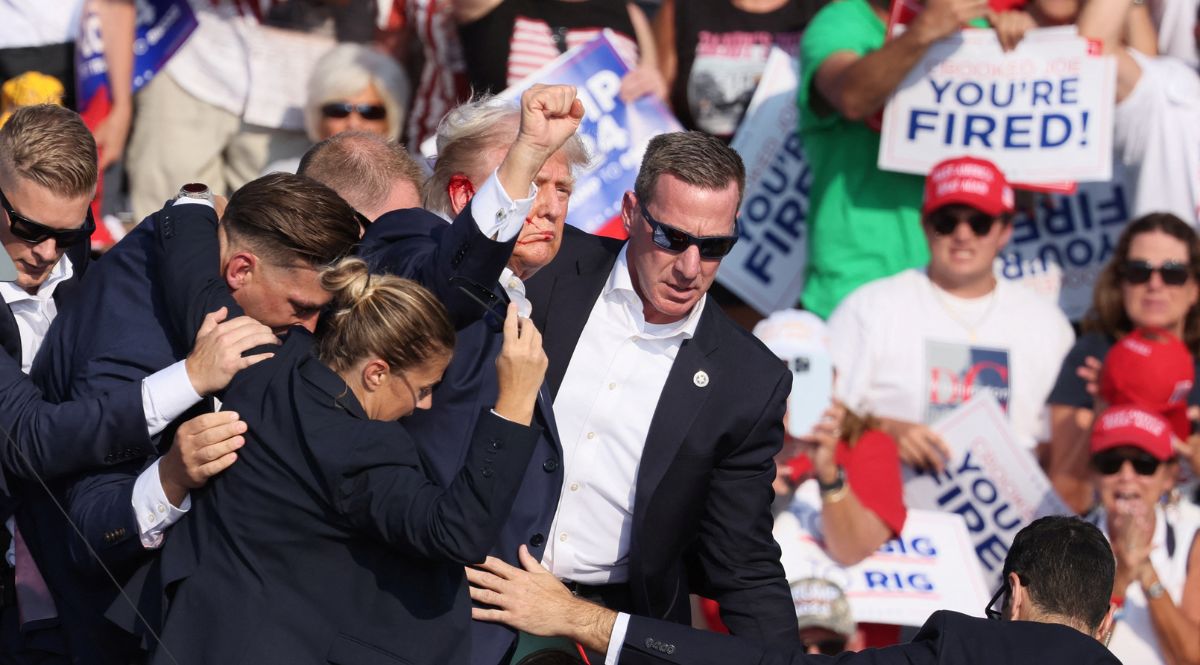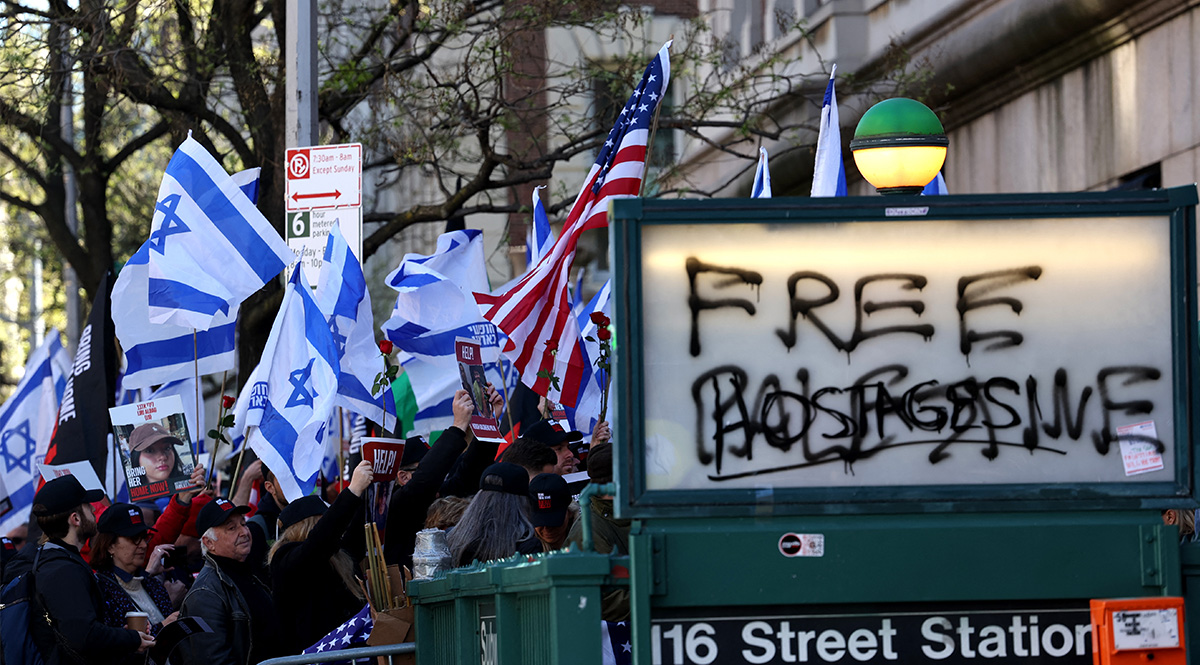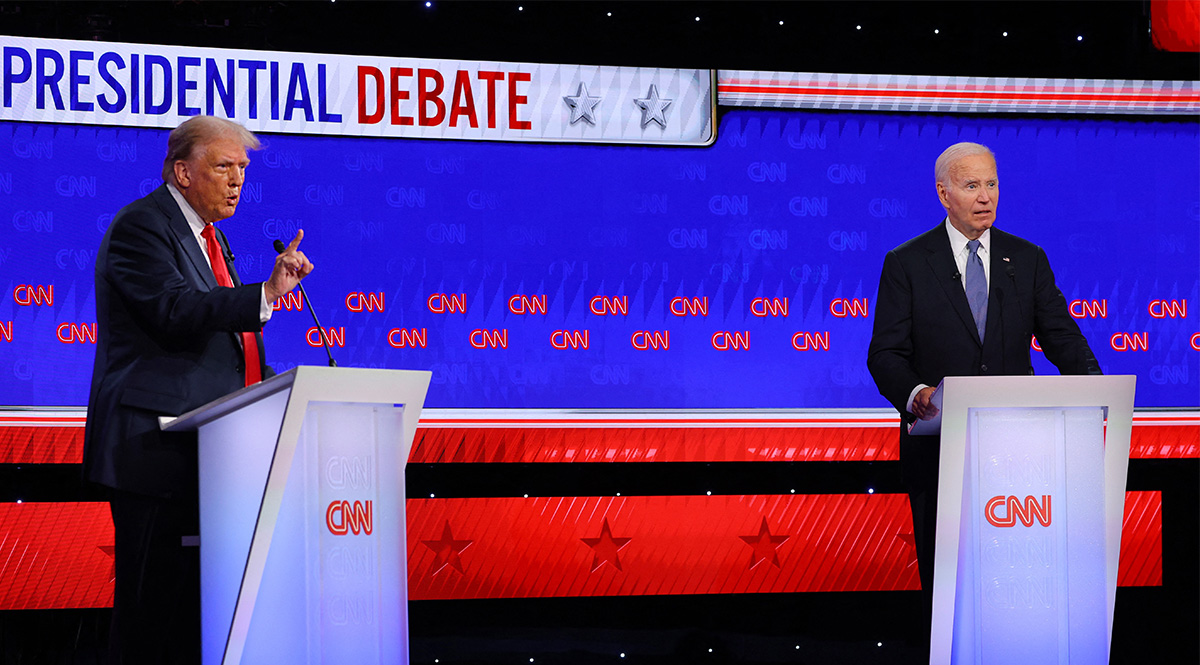Trump Narrowly Escapes Assassination Attempt
On 13 July, during Donald Trump’s election rally in Butler, Pennsylvania, a shooter failed in his attempt to assassinate the former president, leaving him only slightly injured. However, one rally participant was killed and two others seriously injured. The perpetrator of the attack was killed by a Secret Service sniper. The attack on the former president will further mobilise the conservative electorate for the election, strengthening Trump’s chances of winning.
 Brendan McDermid / Reuters / Forum
Brendan McDermid / Reuters / Forum
What were the circumstances of the attack?
The perpetrator of the attack, whose motivations are unknown at this point, fired shots at Trump from the roof of a building about 150 metres away from the rally site. Security for the event was the responsibility of the Secret Service (USSS), the federal service responsible for protecting the nation’s most important people (Trump is eligible as a former president and leading candidate), in cooperation with local police. A statement from the USSS says that the building from which the shots were fired was outside their immediate security area and should have been under the control of local police. However, it is the USSS that is responsible for preparing overall plans and instructing local forces how to secure potential threats.
The attack has been tentatively classified by the FBI as a case of domestic terrorism, and the USSS is conducting an internal investigation to determine what mistakes made the attack possible. An independent investigation into the matter has been ordered by President Joe Biden, and separate reviews will be conducted in both Chambers of Congress, in the House of Representatives’ Oversight and Intelligence Committee and the Homeland Security and Governmental Affairs Committee of the Senate. USSS Director Kimberly Cheatle and Homeland Security Secretary Alejandro Mayorkas have already been invited to hearings.
What were the reactions of Trump and Biden after the attack?
Shortly after the assassination attempt, the incumbent president spoke out, urging people to be calm and not ascribe political motives to the assassin. Trump himself also refrained from making strong comments that could exacerbate the already charged atmosphere, but the chances he will maintain this tone are slim given the Republican voter base’s tendency to blame political opponents. The effect of the assassination attempt may be a more stimulated Trump, who may want to capitalise on the increased outrage of his voters and the resulting rallying effect of supporters around the candidate after the attempted killing. At the same time, President Biden may have more limits on his public activity over concerns about his security and USSS protection in such cases. This will in turn lead to attacks from Trump and Republicans who will argue Biden’s absence from the campaign trail are the result of physical or mental problems. The aftermath of the shooting could deepen internal discussions within the Democratic Party about replacing Biden with another candidate.
How might the attack affect the election campaign?
Trump’s behaviour during the assassination attempt and the services’ evacuation of him from the scene will strengthen his political standing. During the Secret Service’s attempt to secure the former president, symbolic photos and footage were taken showing him calling for his supporters to “fight”, which were immediately circulated by news outlets. The attack occurred just before the Republican Party convention in Milwaukee (15-18 July), at which Trump is to be formally nominated as the party’s candidate in the presidential election. It was announced that the young senator J.D. Vance from Ohio will be his running mate for vice president. Trump had already been strengthened following a 1 July Supreme Court ruling that extended presidential immunity and gave him partial protection from charges of trying to illegally stay in power after losing the election. Now Trump’s goal will be to make the most of the assassination attempt as part of his election campaign. The Republican candidate will want to consolidate a hardcore electorate around him while trying to reach undecided voters in states crucial to the outcome of the vote. His staff and political entourage will try to portray the candidate as physically and emotionally tougher than Biden, which will increase polarisation among voters who doubt Biden’s fitness for office.
What are the likely consequences of the assassination attempt for U.S. political stability?
If Trump wins the November presidential election, he will seek to use both the failed attempt on his life and his stance as a strong leader to strengthen the position of the president and his demands in the U.S. power system, as he has in the election campaign. Trump, bolstered by the attempted attack, may want to fully implement the tenets of a recently circulated working programme called “Project 2025”, which includes deep changes in the federal administration and further strengthening of the office of the president to give him direct oversight of previously semi-autonomous parts of government, such as the Justice Department. Trump may in the future use the shooting as a justification for the rapid removal of key administration officials whose tenure is by definition apolitical—especially those responsible for national security, including counterterrorism efforts. Thus, he will most likely repeat his conduct from his first term in office, for example, when he dismissed FBI chief James Comey, among others. Trump’s possible victory under such circumstances will be questioned by some of the public, which will reduce the legitimacy of his power. This will lead to a further deepening of social and political divisions, including more radicalisation of American society. In extreme cases, this may even manifest itself in the form of physical attacks on politicians, such as the assassination attempts on Trump or on Congressmen Republican Steve Scalise in 2017 and Democrat Gabby Giffords in 2011, or violent riots, as in the case of the Capitol attack.






